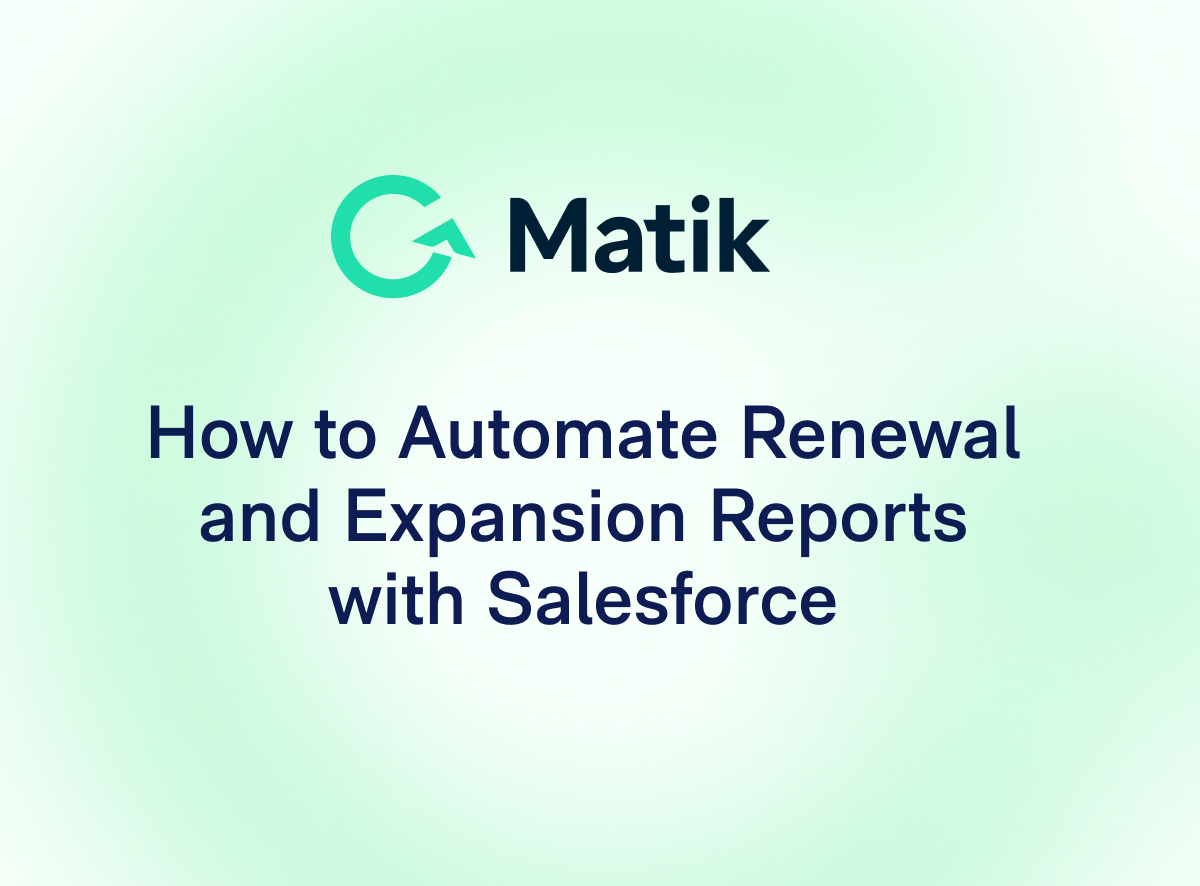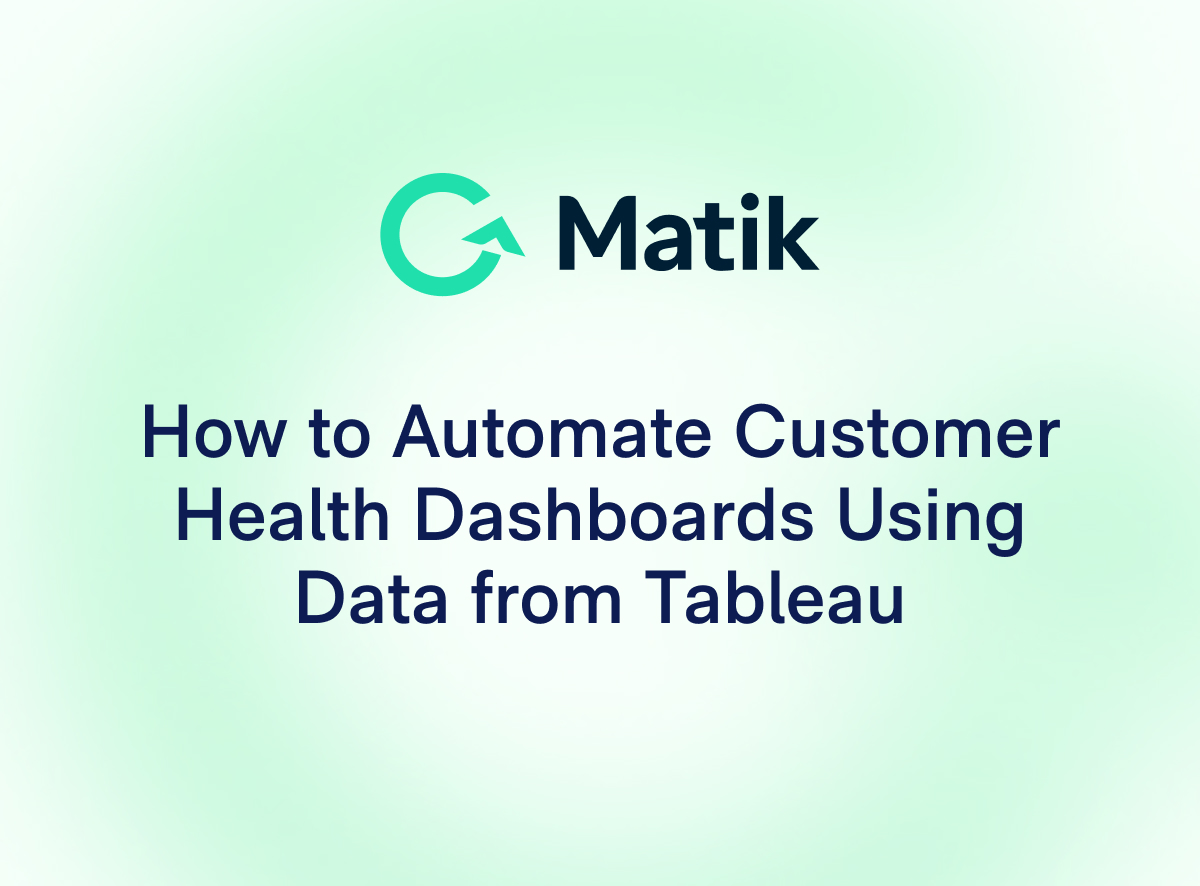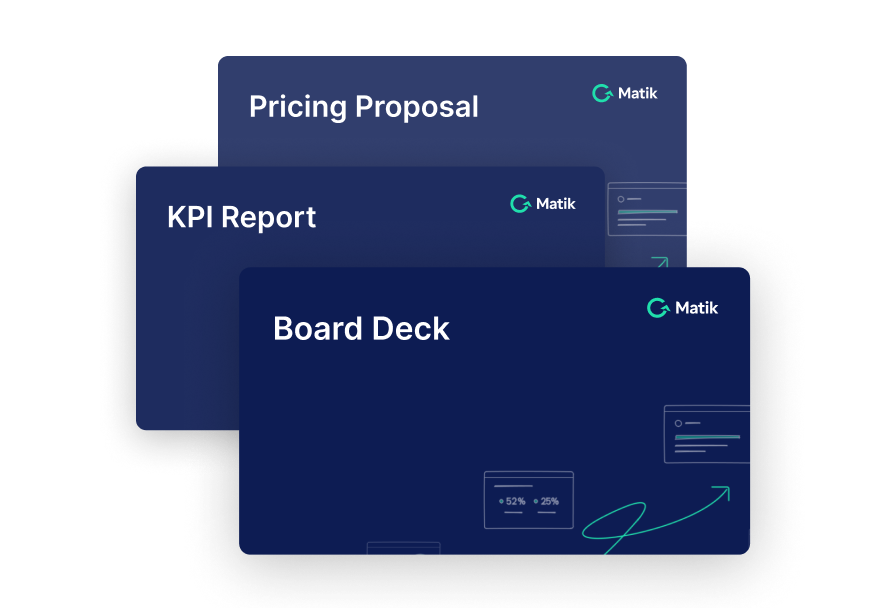Join Our Newsletter
Data-driven content is an essential component of a successful customer success strategy. When you leverage data-driven content, you are adopting a customer-centric mindset: to tell meaningful data-driven stories, you must first get inside of your customers’ heads and understand their objectives.
For example, say you are selling a support ticketing platform and your customer’s goal is decreasing the time it takes to resolve a ticket. If your CSM simply tells your customer that the platform is being used regularly, your customer is not compelled to renew. However, if you can show your customer the average resolution time for last month vs. this month, the value of your product becomes undeniable.
Personalized data-driven stories take the raw data your customers care about and use it to craft an easy to understand narrative. As a result, your customers feel seen, they have confidence in your credibility, and they know what next action to take. An effective data-driven story will help your customer see that your product plays an essential role in achieving their business goals, which, in turn, contributes to your company’s success.
The challenge of keeping data-driven storytelling up-to-date
Data-driven stories are not one-off, static entities. They are powerful because they evolve as new data and information come to light.
In order for your business to continue to provide a valuable, competitive service, you are constantly optimizing your product and business practices. For Customer Success Managers, this means learning new information about their accounts and their use of the product. These updates should appear in the data driven-stories they tell.
In light of this regular influx of new data, the challenge becomes how to keep data-driven stories up-to-date.
Unfortunately, for most companies the answer is not straightforward. Ensuring that your team has the latest data to inform their customer narratives typically requires a close partnership with your data team. And even once that partnership is established, individual Customer Success Managers may need support turning raw data into insights that will resonate with their accounts.
It’s time to move beyond traditional ways of pulling data
In order to support your CSMs in telling data-driven stories that are personalized, relevant, and up-to-date, it’s time to move beyond traditional ways of pulling data.
Data teams (or, in the case of some start-ups, a single data analyst), are responsible for data maintenance and analysis for an entire company. Understandably, they may not have the bandwidth to regularly pull reports—and help interpret them—for CSMs.
Since fresh data is necessary if you want to tell effective data-driven stories, the burden of pulling this data can’t fall on the data team alone. Instead, find a partner who can automate the process of surfacing relevant account data and translating it into meaningful insights.
This way, even CSMs whose strength is not data analysis can become masterful data-driven storytellers, forge lasting customer relationships, and ensure the long-term success of your business.
To learn more about how data-driven content is an important part of your business strategy, check out our free eBook.
---
See Matik in Action—Request a Demo















